Sommaire
Pagination de l'dition papier
Guide
 InterVarsity Press
InterVarsity Press
P.O. Box 1400 | Downers Grove, IL 60515-1426
2022 by Gordon T. Smith
All rights reserved. No part of this book may be reproduced in any form without written permission from InterVarsity Press.
InterVarsity Press is the publishing division of InterVarsity Christian Fellowship/USA. For more information, visit intervarsity.org.
Scripture quotations, unless otherwise noted, are from the New Revised Standard Version Bible, copyright 1989 National Council of the Churches of Christ in the United States of America. Used by permission. All rights reserved worldwide.
While any stories in this book are true, some names and identifying information may have been changed to protect the privacy of individuals.
The publisher cannot verify the accuracy or functionality of website URLs used in this book beyond the date of publication.
Cover design and image composite: David Fassett
Images: two hands: CSA Images / Getty Images
paper texture: from True Grit Paper Supply
ISBN 978-1-5140-0342-8 (digital)
ISBN 978-1-5140-0341-1 (print)
This digital document has been produced by Nord Compo.
for joella
Also Available From Gordon T. Smith
Called to Be Saints
Courage & Calling
Consider Your Calling
Listening to God in Times of Choice
Spiritual Direction
The Voice of Jesus
Evangelical, Sacramental, and Pentecostal
Teach Us to Pray
Wisdom from Babylon
Institutional Intelligence
Welcome, Holy Spirit
Preface
WE LIVE OUR LIVES by intentional response to the calling and initiative of God. We do not live self-constructed lives; rather, the meaning of our existence is that we live open to and attentive to what we sense God is saying to us. It follows that it is appropriate for us to then ask what it means for each of us to be stewards of the one unique and remarkable life that has been given to us. What does it mean to do what we have been invited by the Creator to do? What does it mean to respond to the invitation of God to participate in what God is doing as Creator and redeemer of the world? What does it mean for each of us, within the particulars of our circumstances, to live out the call to love our neighbor as God has in Christ loved us? And in all of this, what does it mean for us to see our daily lives, our chores, our engagement with the world as having sacred significancenot just specific religious activities, but each action, each word spoken, each way of being present to our world?
In reflecting on the significance of our lives and our work, I am indebted to the sixteenth century Reformers. On the one hand, we recognize that Protestant Reformers John Calvin and Martin Luther fundamentally altered the conversation about vocation when they opened up our vision of life and work to an appreciation of how each Christian was called, and that God was and is calling women and men into all walks of life and work. On the other, we cannot miss the remarkable contribution of Catholic reformer Ignatius Loyola, with his affirmation that God speaks to and is present to each person, in love, and each person has the capacity to know the particular calling and grace of God.
Taken together, we have a powerful affirmation of the significance of each human life, lived out in the world in response to Gods call. Further, we can then consider what this means for each one of us to think about our lives, our work, and our vocations. What followsthis question, the meaning of our lives and our work in the here and nowwill be considered from different perspectives. The opening two chapters speak of vocation as something found at the intersection of this person, at this time, and in this place. These two chapters are foundational as they set the stage for what follows.
The next two chapters speak of the tensions we often feel when it comes to vocation as we wrestle with multiple vocationsthe varied ways in which we are called to be present to our world. In these chapters, we will consider the need to face transitions with grace and courage.
Then I move to two chapters where I speak to thoughtfulness and to the work of our hands. Initially, I invite the reader to value and affirm the life of the mind as essential to our capacity to fulfill our vocations. And, as the complement, a chapter on the work of our hands and the calling to crafts and trades. I suggest to the reader that both of theseour minds and our handsare an essential complement to our lives and our work, regardless of our callings.
Another chapter follows that speaks of the intersection of our personal vocations with the organizations in which those callings are located. From there, I speak to what I will call practices of engagementspiritual practices that foster our capacity to be attentive to where and how God is present and acting in our world. Finally, I speak to hope: the virtue and disposition without which we cannot livethe resilient hopefulness that necessarily must undergird our lives and our work.
Each chapter has a simple agenda: to foster our capacity to make sense of our lives, our work, and very specifically, the calling of God. But also, I would like to encourage good conversation about our lives and our work. I will frequently stress that while we need to take personal responsibility for our lives, we need the company of others to help us make sense of the particulars of our situation and the challenges we personally face or feel. To this end, consider reading this guide to vocation along with anothera friend or spouse, a study group, or perhaps a group of friends on the journeyreflecting together on the questions posed at the end of each chapter.

At This Time and in This Place
VOCATION IS ALWAYS PARTICULAR: this person, at this time, and in this place. Vocation is never discerned in a historical vacuum; it is always in the specifics of the world in which we live. It is always about the here and nowand, as needs to be stressed, it is the here and now as it comes to us, as it presents itself, not as we wish it to be. We get beyond wishful thinking, and we name reality and discern calling in the light of and in the midst of this time and this placethis situation.
Therefore, we ask, at this time and in this place, who and what are we called to be and do? What does it mean to steward our lives in light of our economic circumstances, marital status and family situation, age, and personal health? What does it mean to be attentive to what we bring to the table in a way that takes full account of our social and cultural context, as well as the economic and political situation in which we are living, locally and globally?
We ask, at this time and in this place, who and what are we called to be and do ?
Vocation and calling are about much more than our occupation or job or career. It certainly includes the work for which we are responsiblewhether waged or volunteer or managing a home with the whole range of domestic activities so vital to what it means to call a place home. But it also includes the network of social and family connections that are an essential part of our lives. And so, within the midst of all we are and all we are responsible for and those we are responsible to, we ask the question, What am I being called to say and do?

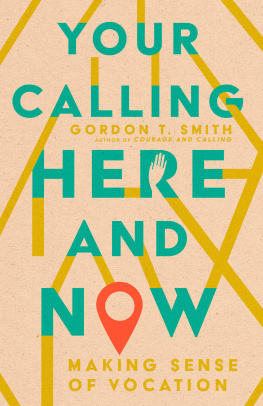
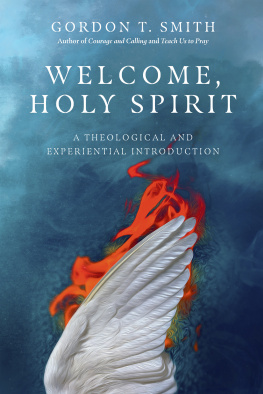
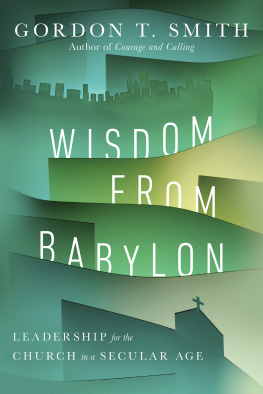
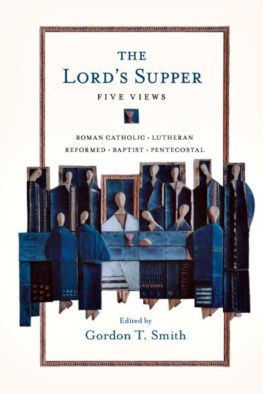
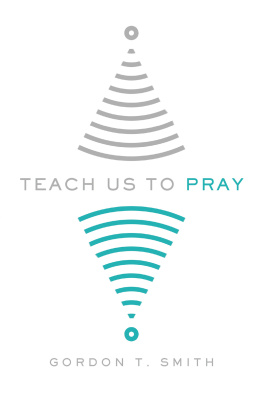

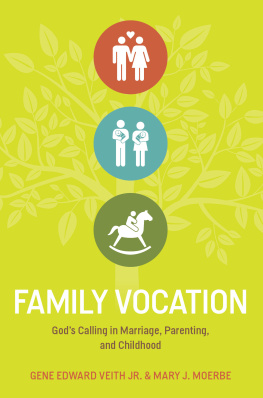

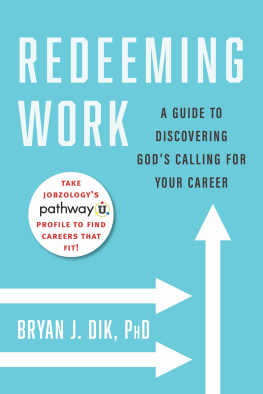

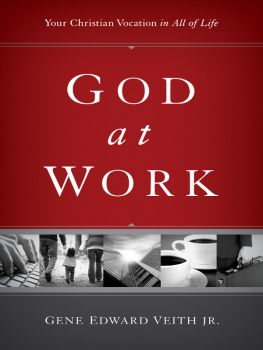

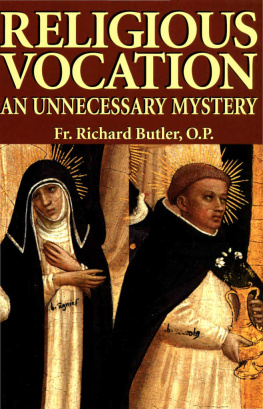
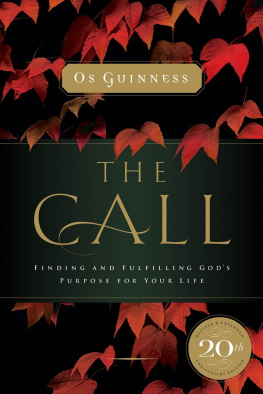

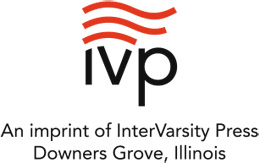
 InterVarsity Press
InterVarsity Press